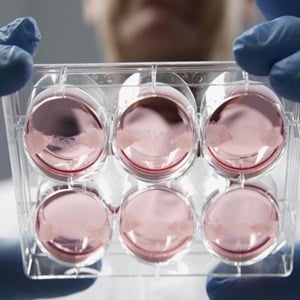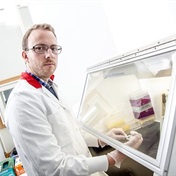
Doctors have successfully implanted laboratory-grown vaginas into four teenage girls suffering from a rare birth defect, creating new organs with feel and function comparable to that of a "natural" vagina, a new study reports.
Another research team is reporting the first successful nose reconstruction surgery using laboratory-grown cartilage.
In both cases, doctors harvested the patients' own cells and used them to create new tissue that was then grafted back onto the body.
Read: Scientists rebuild thymus in mice – hope for humans
The two studies, published online in The Lancet, show how years of research into tissue engineering for skin grafts is being put to practical use for other purposes, said Dr Samuel Lin, an associate professor of surgery at Harvard Medical School and site director of Harvard's plastic surgery residency training programme.
"Perhaps now we're just seeing the translational products of all that research that has been going on for years," Lin said.
Absent vagina
One study involved girls aged 13 to 18 who were born with Mayer-Rokitansky-Kuster-Hauser syndrome, a rare genetic condition in which the vagina and uterus are underdeveloped or absent.
Researchers harvested muscle cells and epithelial cells from a biopsy (surgically removed tissue sample) of each girl's genitals. Epithelial cells line body cavities and are able to generate or release fluid and detect sensation.
In a process that took three to five weeks, doctors grew the cells into larger tissue cultures that were then attached to a biodegradable "scaffold" hand-sewn into the shape of a vagina. The scaffolds were tailor-made to fit each patient and are made of the same type of material used in surgical sutures.
Read: More patients getting lab-grown body parts
Once the new vaginas were ready, surgeons created a canal in each patient's pelvis and stitched the scaffold to the girls' reproductive structures. The girls' bodies proceeded to form nerves and blood vessels into the grafts, and gradually replaced the engineered scaffold with a new, permanent organ.
"It's just like when you're having plastic surgery and they place a skin graft on you to replace damaged tissue," said senior author Dr. Anthony Atala, director of the Wake Forest Baptist Medical Centre's Institute for Regenerative Medicine in Winston-Salem, North Carolina. "The graft will re-grow blood vessels and nerves," he said.
Normal function
The girls received their grafts between 2005 and 2008, and data from annual follow-up visits show that even up to eight years after the surgeries the organs had normal function.
Tissue biopsies, MRI scans and internal exams using magnification all showed that the engineered vaginas were similar in makeup and function to natural tissue. Even doctors said they couldn't tell where the girls' natural tissue ended and the graft began.
Read: Scientists grow teeth in mice
Questionnaires the girls completed showed they test normal in all areas of female sexual function, including desire, arousal, lubrication, orgasm, satisfaction and painless intercourse.
The results are "fascinating" given the complexity of the tissue structure and function of a vagina, said Dr Monica Mainigi, assistant professor of obstetrics and gynaecology at the Hospital of the University of Pennsylvania.
"I think it's going to open up numerous possibilities for treatment," she said. "It's a promising new field for medicine in general."
Read more:
Eggs, sperm made in lab
Scientists using stem cells to create body parts
Teen 'grows' new cheekbones




 Publications
Publications
 Partners
Partners















